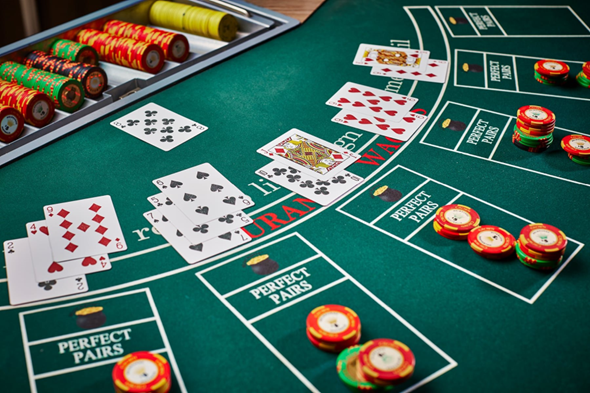Casinos have long occupied a unique space in modern culture—half fantasy, half financial system. They promise entertainment, risk, reward, and an escape from routine. But beyond the flashing lights and spinning reels lies a carefully structured environment designed to shape behavior, hold attention, and keep players returning.
Today, that environment is no longer limited to physical casinos. The digital space has redefined the experience. Mobile access, 24/7 gameplay, and live-dealer streams now blur the line between reality and simulation. In this new landscape, platforms like 22casino offer players a virtual playground built on accessibility, variation, and fast-moving engagement.
The Architecture of Chance
Whether offline or online, casinos are built around controlled unpredictability. Every game has fixed odds. Every round is part of a system. Yet players often feel they are mastering something, learning, adapting, or beating the game. This illusion is part of the design.
Slot machines, for example, use near-miss patterns to suggest that a win is just around the corner. Card games reward memory and decision-making—but only within the limits of probability. In either case, the rhythm of reward and frustration is tightly managed. It keeps players involved without feeling manipulated.
This balance between control and chaos is what makes casinos so compelling. You never quite know what will happen next, but you’re constantly made to feel like your actions matter.
Digital Play, Real Stakes
Online casinos have taken this structure and amplified it. They offer more games, faster rounds, and tailored rewards. Everything is optimized for the screen—graphics, sound, and speed are tuned for maximum stimulation.
Importantly, the digital model allows for endless personalization. Promotions can be targeted. Bonuses adjusted. Game types rotated based on activity. The player’s behavior becomes data, and that data becomes the product. It’s not just about offering the game—it’s about predicting what the player will want next.
There’s also a psychological shift in digital play. Without the physical chips, the noise, or the space to step back, money becomes abstract. A few taps and you’re back in the game. The convenience is part of the hook—but also the risk.
The Social Element, Reinvented
Casinos have always been social spaces—places to gather, compete, and celebrate. Online platforms are now rebuilding that experience. Live chat, tournaments, and real-time multiplayer rooms simulate the buzz of the floor.
Some players prefer these features to the traditional setup. They can play from home, stay anonymous, or chat with strangers without the pressure of being physically present. For others, this digital connection feels hollow. It replaces proximity with interaction, but not necessarily with community.
Yet the demand is strong. Many newer players have never set foot in a brick-and-mortar casino. Their relationship with gaming is shaped entirely by screens, apps, and algorithmically timed incentives.
Responsibility in a Frictionless World
As access becomes easier, the question of responsibility grows. Casinos—especially online—must now address addiction, spending habits, and user awareness more directly. Tools like spending limits, time reminders, and self-exclusion exist. But their visibility and impact vary.
Players in 2025 face a paradox: they have more control over their gaming experience than ever before, but they are also more deeply embedded in systems designed to hold attention. Breaking away isn’t always easy—especially when design makes everything feel seamless.
Transparency and regulation play a role. So does education. The most empowered players are often the ones who understand the odds, recognize the signs of fatigue, and treat gaming as entertainment, not income.
More Than a Game
Casinos are often misunderstood as places of pure luck or reckless spending. In truth, they represent something more complicated. They are environments of strategy, emotion, stimulation, and ritual. They appeal to risk-takers, strategists, casual players, and dreamers alike.
What’s changed in the digital age is scale. The audience is larger. The stakes are more immediate. The competition is faster. But the core idea remains: the casino is a stage where people explore control, chance, and desire.
And while platforms continue to evolve, players will always return for the same reason—they want to feel something happen.



